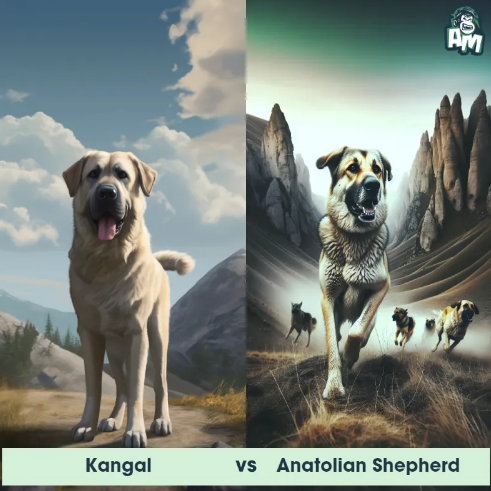Introduction to Kangal Dogs
When you think of Turkey, images of stunning landscapes, rich history, and vibrant culture often come to mind. But there’s another symbol that holds a special place in the hearts of many Turks: the Kangal dog. Renowned for their strength and loyalty, these large guardians are more than just pets; they embody centuries of tradition and heritage. With their unique blend of power and gentleness, Kangal dogs have played a pivotal role in Turkish life for generations. Join us as we explore the fascinating journey of this remarkable breed through history, its cultural significance today, and its evolving roles within modern society.
History and Origins of the Kangal Breed
The Kangal breed traces its roots back centuries in Turkey, particularly in the Sivas region. These dogs were primarily bred by local shepherds to protect livestock from predators.
Their lineage is steeped in a rich history of herding and guarding. The harsh Anatolian landscape shaped their physical traits—solid bodies, powerful jaws, and keen instincts.
Kangals are renowned for their loyalty and intelligence. They possess an inherent ability to discern threats, making them ideal guardians. This instinctual behavior has been preserved through generations as they adapted to the demands of rural life.
In rural communities, these dogs served not just as companions but as crucial partners in agricultural practices. Their presence ensured the safety of sheep against wolves and other dangers lurking on the plains.
The reverence for Kangals continues today, illustrating a deep connection between this breed and Turkish heritage.
Cultural Significance of Kangal Dogs in Turkey
Kangal dogs hold a revered position in Turkish culture, symbolizing strength and loyalty. These majestic canines are not just pets; they embody the spirit of the rural communities in Turkey.
Traditionally, Kangals have been associated with shepherds. They protect flocks from predators like wolves and bears. Their formidable presence provides security to livestock owners, allowing them to thrive in challenging environments.
In folklore, Kangal dogs often appear as symbols of bravery. Tales passed down through generations depict these noble animals defending their territory against threats.
Moreover, they represent an essential part of local heritage. Festivals and events celebrate their significance within families and communities alike. The bond between a Kangal and its owner is profound—rooted in mutual respect forged over centuries.
This deep connection highlights the breed’s importance beyond mere utility, elevating it to a cultural icon cherished by many Turks today.
Roles and Responsibilities of Kangal Dogs in Traditional Turkish Life
Kangal dogs serve as invaluable guardians in rural Turkey. Their primary role is protecting livestock from predators, especially wolves and bears. With their remarkable strength and agility, they deter threats with confidence.
Farmers rely heavily on these dogs to keep flocks safe during the night. A Kangal’s keen senses alert them to any danger nearby. This vigilance ensures the safety of sheep and goats, which are vital for local livelihoods.
Beyond protection, Kangal dogs also foster a deep bond with their handlers. They provide companionship while working alongside shepherds in vast pastures. This relationship is built on trust and mutual respect.
In Turkish culture, Kangal dogs symbolize loyalty and bravery. They embody qualities that resonate deeply within communities that depend on agriculture and livestock farming for survival. Their presence represents not just security but also a way of life deeply rooted in tradition.
Modern Uses for Kangal Dogs
Kangal dogs have evolved from their traditional roles into modern-day protectors and companions. Their impressive size and strength make them formidable guardians for livestock farms across Turkey and beyond.
In recent years, they’ve gained popularity in urban settings as family pets. Their loyal nature and protective instincts appeal to many dog lovers looking for a devoted companion.
Training programs have also emerged that focus on socializing Kangals, ensuring they adapt well to various environments while retaining their natural instincts.
Additionally, Kangal dogs are sometimes utilized in search-and-rescue operations due to their keen sense of smell and intelligence. This versatility showcases how these noble creatures can bridge the gap between tradition and contemporary life.
As awareness grows about this breed’s remarkable qualities, more people around the world are discovering the unique charm of Kangal dogs.
Controversies Surrounding the Breed
The Kangal breed, while celebrated for its loyalty and protective instincts, has not been without controversy. Critics often raise concerns regarding the aggressive reputation associated with these dogs. Misunderstandings about their nature can lead to negative perceptions.
Another point of contention revolves around breeding practices. Some breeders prioritize appearance over temperament, risking health issues in future generations. This shift from traditional values can threaten the integrity of the breed.
Moreover, there are debates surrounding ownership regulations. As Kangals gain popularity beyond Turkey’s borders, questions arise about proper care and training requirements. Not everyone may be equipped to handle a dog with such strong guarding instincts.
Social media plays a role in shaping public opinion. Viral videos showcasing Kangal behavior sometimes miss vital context, leading to misconceptions that fuel fear rather than appreciation for this remarkable breed.
Conclusion:
The Kangal dog holds a special place in Turkish culture, blending tradition with practicality. With their origins rooted deep in Anatolia, these dogs have been indispensable to farmers and shepherds for centuries. Their significance extends beyond mere utility; they symbolize strength, loyalty, and the close bond between humans and animals.
As guardians of livestock against predators like wolves and bears, Kangals have earned respect within communities. They embody resilience in harsh environments while serving as protectors of both family and property. This breed’s unique characteristics are celebrated not just locally but increasingly on an international level as well.
In modern times, the role of Kangal dogs has evolved. While still widely used in agriculture, they now also appear in various public services due to their protective instincts. However, increased popularity brings challenges such as overbreeding and potential misrepresentation of their true nature.
Controversies surrounding the breed often arise from misunderstandings about their temperament or capabilities when removed from traditional contexts. Addressing these misconceptions is vital for preserving the integrity of this remarkable breed.
Kangal dogs are more than just animals; they represent a cultural heritage that connects people to their land and history. As awareness continues to grow globally regarding this majestic breed, it remains essential to honor its roots while adapting to contemporary needs.


